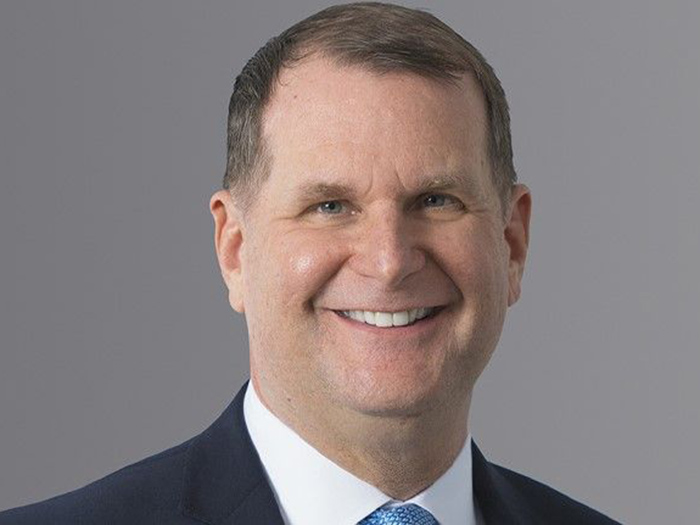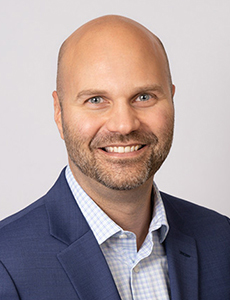Kevin Rampe Charts the Future of Chubb’s Claims Management

Risk & Insurance recently had a conversation with Kevin Rampe, the head of North America claims at Chubb, about the future of claims management, the role of empathy in the claims experience, and the impact of climate change on claims management at this year’s RISKWORLD conference.
What follows is a transcript of that conversation, edited for length and clarity.
Risk & Insurance: What is your vision for the future of claims management at Chubb, and how do you see that evolving over the next decade?
Kevin Rampe: At Chubb, claims management has always been centered around our people. We have an incredibly talented team with over a century of reputation for delivering outstanding claims service. Moving forward, maintaining this level of service will depend on our people’s ability to uphold technical excellence while effectively utilizing the tools we provide them.
These tools, whether digital or data-driven, will be crucial in enhancing the level of service our team can offer. By leveraging these resources, we can expedite the claims process, providing answers and payments more quickly to our clients.
Ultimately, the future of claims management at Chubb lies in the synergy between our skilled professionals and the advanced tools at their disposal. This combination will allow us to continue delivering the high-quality, technically proficient service that has been our hallmark for over a century.
R&I: What are the biggest opportunities and challenges currently facing the claims industry?
KR: The biggest opportunities center around digital tools and data. Leveraging digital tools is critical to providing faster service to our clients.
We have a large amount of data within our organization and from third-party sources. Our ability to effectively utilize this data to expedite the claims process, without having to repeatedly ask clients the same questions, is crucial for maintaining high levels of service excellence.
The challenges lie in our ability to adopt and maximize these tools. It requires a culture shift, ensuring that our people understand the expectations and our culture, which focuses on empathy, service, and technical excellence. We must bring in these tools to assist our talent in providing exceptional claims service.
R&I: How critical is empathy in the claims experience?
KR: Empathy is the cornerstone of exceptional claim service. It’s about anticipating our clients’ questions and needs before they even express them.
When an individual finds themselves in a challenging situation, such as dealing with property damage or facing a lawsuit, they want to speak with an adjuster who understands their perspective and can put themselves in their shoes. It’s our responsibility to provide the necessary support and expertise to help them navigate these difficult times while they juggle other aspects of their lives.
Whether it’s arranging alternative living arrangements for someone whose home has been damaged or providing legal guidance to someone facing a lawsuit, empathy is crucial. We pride ourselves on being there for our clients, offering the expertise and support they need during these scary moments in their lives.
R&I: What are you seeing in terms of claims management considering global climate change and natural disasters? How is sustainability being integrated into claims management at Chubb?
KR: We are facing significant headwinds when it comes to climate-related catastrophes. The 2024 Atlantic hurricane season is forecast to be one of the worst on record, and there’s an expected $1-5 billion in additional hail damage in the southwest, according to PCS.
At Chubb, we approach these challenges through multiple avenues. We have 150-200 field adjusters who express empathy while dealing with clients directly as catastrophes happen. Our desk adjusters use digital tools to relate with clients, allowing them to send photos of damage for quicker claim processing.
Additionally, we have dedicated response teams comprised of professionals who understand Chubb’s and our clients’ expectations for service levels during catastrophic events. We take great pride in our ability to respond to clients’ needs during these times, as evidenced by our increasing NPS scores during catastrophes.
R&I: What new measures or technologies is Chubb exploring to enhance fraud detection and prevention as claims fraud becomes more sophisticated?
KR: At Chubb, we have a dedicated Special Investigations Unit (SIU) led by a former FBI leader from Philadelphia. The team brings a combination of insurance expertise, law enforcement experience, and an understanding of how to build cases for prosecution. We work closely with U.S. Attorney’s offices, district attorneys, and others to ensure that insurance fraud is prosecuted.
As fraud becomes more prevalent and sophisticated, we are seeing network fraud involving various players from the provider community, legal community, auto industry, and in areas like workers’ compensation and general liability. Identifying these networks can be challenging without the right tools.
To address this, we are testing data analytics tools that allow us to analyze our large set of claims data. These tools help us identify situations with repeat or duplicative billing, as well as treatments that exceed what would typically be given for specific injuries. We continue to develop these capabilities alongside the training and growth of our dedicated SIU team.
R&I: How is Chubb leveraging data analytics in claims operations, and what’s been the impact on your decision-making processes and outcomes?
KR: At Chubb, we view data analytics through the prism of client service. Our reputation for providing the best client service is something we value and never take for granted.
Data analytics allows us to anticipate our customers’ needs, pre-fill forms, and ask fewer questions when they’re in a moment of need. In the event of a catastrophe, we can deploy resources early, understand the expected damage, and help clients start on the road to recovery even before damage occurs.
Internally, we use data analytics to streamline and expedite our adjusting process. From the start of every claim, we use data elements to identify severity and required expertise, assigning claims to the right adjuster with the appropriate tools to achieve the best results.
Throughout the repair process, we collect data from various vendors to receive alerts and understand if there are any delays or problems. We proactively address issues to streamline the process and protect our clients from additional headaches.
On the liability side, we use data analytics to better identify counsel, ensuring our clients have the best possible defense when unfortunately sued.
R&I: What changes do you foresee in the skill sets required for future claims professionals as the claims landscape evolves?
KR: The core qualities of a claims professional will remain constant – technical expertise in their craft and empathy for clients. However, the tools available to them will continue to advance rapidly.
Claims professionals of the future will need to effectively leverage data analytics and collected information to enhance both their technical skills and client service. By harnessing data, they can provide faster, more empathetic service, ensure accurate claim assessments, and determine appropriate payouts. &










